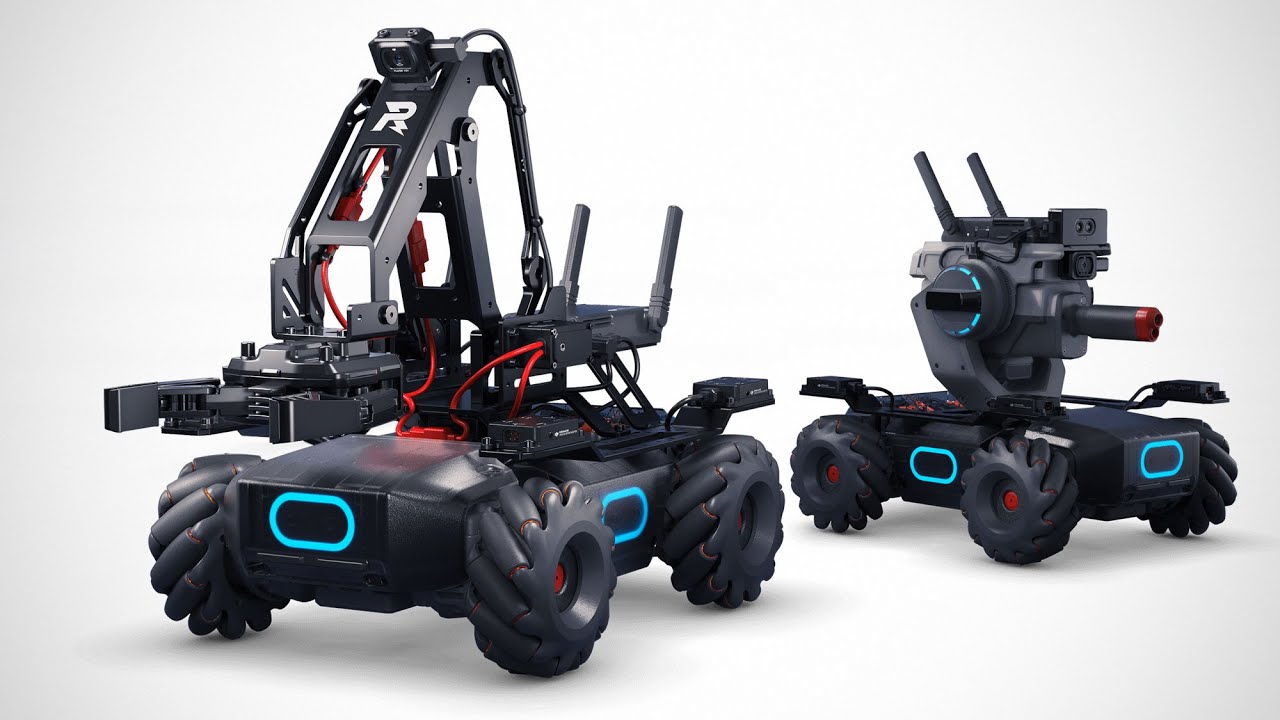- 1. Understanding Key Terms
- 2. Foundations of AI SaaS Platforms
- 3. The AI-Powered SaaS Landscape
- 4. Technical Components of Building an AI SaaS Product
- 5. Machine Learning in SaaS
- 6. AI Tools, Technologies, and Systems
- 7. Development and Integration
- 8. Conversational Tools in AI SaaS
- 9. Strategies for SaaS Companies in the AI Era
- 10. Roles and Responsibilities in AI SaaS Development
- 11. Conclusion
In the dynamic world of technology, the intersection of SaaS (Software as a Service) and AI (Artificial Intelligence) is redefining industries. The growing relevance of AI in the SaaS market is prompting businesses to adopt new models and strategies to stay competitive. As organizations gear up to create an AI SaaS product, they need to understand the intricacies and opportunities presented by this powerful combination.
Understanding Key Terms
Navigating the complex world of AI and SaaS requires a clear understanding of its jargon. This section demystifies the most common terminologies, offering readers a solid foundation to grasp the intricate nuances of AI-powered SaaS solutions.
AI, ML, NLP, and Deep Learning: Core Concepts
Understanding the core concepts of AI and its subfields like ML (Machine Learning), NLP (Natural Language Processing), and deep learning is essential for any AI SaaS product. These technologies empower software solutions, driving intelligent automation and enhancing user experience.
SaaS vs. PaaS vs. AIaaS
SaaS refers to cloud-based services where applications are provided over the internet. On the other hand, PaaS (Platform-as-a-Service) is a platform allowing customers to develop, run, and manage applications without the complexities of infrastructure. AIaaS (AI as a Service) is the offering of AI solutions via the cloud, integrating AI tools and technologies without the need for in-house expertise.
AI as a Service (AIaaS): What it Means
AIaaS is a revolutionary SaaS model, where AI-powered solutions and capabilities, from ML algorithms to conversational AI chatbots, are provided on-demand to businesses. This approach offers flexibility, scalability, and reduced costs.
Foundations of AI SaaS Platforms
Before delving deep into the mechanics of building an AI SaaS product, it’s essential to understand its foundational pillars. This segment outlines the core components and principles that form the bedrock of successful AI SaaS platforms.
Basics of AI and Machine Learning
AI and machine learning work hand in hand. While AI aims to simulate human intelligence in machines, ML is a subset that provides systems the ability to automatically learn from data. The success of any AI SaaS product often depends on data quality and the robustness of algorithms.
The Role of Data Science and Data Quality
Data science involves extracting insights from structured and unstructured data. Data scientists use AI tools, machine learning features, and other AI technologies to ensure data quality, which is pivotal for AI systems to generate accurate predictions.
Significance of NLP and Conversational AI
Conversational AI, including AI chatbots, is transforming customer interaction in the SaaS industry. Powered by NLP, these tools understand and process human language, offering a more personalized and efficient user experience.
The AI-Powered SaaS Landscape
With AI reshaping every industry, the SaaS realm is no exception. Here, we will explore the current landscape of AI-driven SaaS products, emphasizing trends, innovations, and how businesses are leveraging AI to gain a competitive edge.
SaaS in the AI Market: Current Industry Trends
With the integration of AI and SaaS, there’s a shift in the SaaS market dynamics. Companies are not only using AI to enhance their SaaS solutions but also building dedicated SaaS AI platforms. As AI technologies advance, the line between AI-powered tools and traditional software solutions is blurring.
Case Studies: Successful AI SaaS Products
Numerous SaaS businesses have leveraged AI to gain a competitive edge. Whether it’s employing machine learning SaaS platforms for data analytics or using AI chatbots for customer support, the SaaS industry is witnessing a transformation.
Comprehensive SaaS Solutions Using AI
By integrating AI solutions, many software developers are creating comprehensive SaaS solutions that cater to a broader range of business needs. From intelligent automation to predictive analytics, AI is at the forefront of innovation.
Technical Components of Building an AI SaaS Product
Understanding the underlying technologies and platforms is crucial to build an AI-driven SaaS product. This section sheds light on the pivotal components and how they fit together in the SaaS landscape.
AWS and Cloud Computing: Building on a Cloud Platform
AWS (Amazon Web Services) is a leader in cloud computing. Leveraging such a cloud platform can ensure that your AI SaaS platform has a scalable architecture. Cloud platforms provide the essential infrastructure, making it easier for AI developers to deploy and scale AI solutions without massive upfront investments.
APIs in AI: Development, Integration, and Significance
APIs (Application Programming Interfaces) play a pivotal role in SaaS artificial intelligence. Through API development, different software applications communicate, allowing businesses to integrate AI tools and features seamlessly. Whether you’re looking to integrate API for data analysis or conversational AI, APIs ensure smooth AI integration in any SaaS product.
Importance of Scalable Architecture in AI SaaS Platforms
A scalable architecture ensures that as the demand for your AI SaaS product grows, the system can handle the increased load. This is especially crucial for AI solutions that require large computational power and data storage.
Machine Learning in SaaS
Machine Learning, a subset of AI, is revolutionizing SaaS products by automating data-driven decisions. Dive into how SaaS products are harnessing the power of ML to deliver unique value propositions.
Overview of Machine Learning as a Service (MLaaS)
Machine Learning as a Service (MLaaS) is a subset of AIaaS, providing machine learning tools as cloud services. MLaaS solutions are gaining traction in the SaaS market, allowing even businesses without in-house AI expertise to benefit from machine learning features.
Integrating Machine Learning Features into SaaS Products
To stay competitive in the SaaS industry, many SaaS businesses are integrating machine learning features into their platforms. This not only enhances data analytics capabilities but also offers predictive insights, making the SaaS product more valuable to end-users.
AI Tools, Technologies, and Systems
The success of any AI SaaS product largely depends on the tools and technologies backing it. This section explores the various AI tools available and how to effectively utilize them in SaaS applications.
Overview of AI Development Tools
AI development is facilitated by a range of tools designed for specific tasks. Whether it’s data processing, neural network design, or AI/ML development in general, selecting the right AI tools is crucial for effective AI development.
Exploring AI Platforms and AI/ML Development Strategies
AI platforms provide an environment for AI/ML development, offering pre-built algorithms, data processing tools, and more. Developers can leverage these platforms to streamline AI development and ensure that AI solutions are robust and efficient.
Intelligent Automation in AI Systems
Intelligent Automation combines traditional automation with AI technologies. By incorporating machine learning, NLP, and other AI technologies, systems can make decisions, learn from data, and automate complex processes more effectively.
Development and Integration
Blending AI into SaaS products requires a seamless integration process. This segment delves into best practices and strategies to ensure a smooth integration of AI capabilities into your SaaS offerings.
AI Development: Best Practices
For successful AI integration in a SaaS product, AI developers need to adhere to best practices. This includes understanding the problem, curating quality data, choosing the right algorithms, and continuously testing and refining AI solutions.
Integrating AI Solutions in Software Development
Software developers are increasingly incorporating AI solutions into their products. From personalizing user experiences to automating repetitive tasks, AI integration is reshaping software development.
API Integration in SaaS Artificial Intelligence Products
Seamless API integration ensures that AI-powered features work cohesively within the broader SaaS platform. This includes everything from integrating machine learning models to embedding AI chatbots for enhanced user interactions.
Conversational Tools in AI SaaS
Conversational tools have emerged as a game-changer in enhancing user experiences in SaaS products. Learn about the rise of AI chatbots and how they are shaping the future of user interactions.
Rise of AI Chatbots in SaaS Businesses
AI chatbots have become an integral component of many SaaS platforms. They provide immediate customer support, streamline workflows, and offer a more personalized user experience. These conversational AI tools are transforming the way SaaS businesses interact with their clients.
Benefits and Challenges of Conversational AI in SaaS
While conversational AI tools like chatbots enhance user interaction and reduce operational costs, they come with challenges. Ensuring data quality, maintaining context in conversations, and updating AI models to understand evolving user queries are some hurdles SaaS businesses must overcome.
Strategies for SaaS Companies in the AI Era
As AI reshapes the SaaS landscape, businesses need to realign their strategies to stay competitive. Here, we discuss how SaaS companies can navigate and capitalize on the AI wave.
Understanding the SaaS Model in the AI Industry
The SaaS model is evolving with the infusion of AI. From being just software solutions, many platforms are now becoming holistic AI-powered ecosystems. This change prompts SaaS companies to rethink their strategies, focusing more on AI integration and innovation.
SaaS Business Strategies: From Product to Platform
Modern SaaS companies are transitioning from offering standalone products to comprehensive platforms. By integrating AI tools, technologies, and systems, these platforms cater to a wider range of customer needs, ensuring scalability and adaptability in the SaaS market.
Ensuring AI Solutions Cater to the SaaS Market Needs
For any AI SaaS product to be successful, it must cater to market needs. This requires continuous research, feedback analysis, and iterative development to ensure that AI solutions are in line with user expectations and industry demands.
Roles and Responsibilities in AI SaaS Development
Behind every successful AI SaaS product is a team of dedicated professionals. This section highlights the roles and responsibilities of those driving the AI transformation in the SaaS domain.
AI Developers: Skillsets and Expertise
AI developers are at the heart of any AI-powered SaaS product. With expertise in AI technologies, algorithms, and systems, they build and refine solutions that drive intelligent automation, data analysis, and user interaction.
Role of Data Scientists in AI-Powered SaaS
Data scientists play a pivotal role in ensuring the success of AI in SaaS. They handle data quality, choose the right ML algorithms, and extract meaningful insights from vast amounts of data. Their expertise ensures that AI solutions are accurate, efficient, and valuable.
Software Developers in the SaaS Industry
Software developers in the SaaS industry now need to have a dual skill set. Apart from traditional software development, they also need to understand AI integration, machine learning features, and the nuances of building an AI SaaS platform.
Conclusion
The marriage of AI and SaaS heralds a new era in technology. With continuous advancements in AI technologies and the growing demands of the SaaS market, the potential for AI-powered SaaS products is enormous. As AI continues to permeate the SaaS industry, companies that can effectively integrate AI solutions into their platforms will lead the way, setting new benchmarks for innovation and customer experience.







